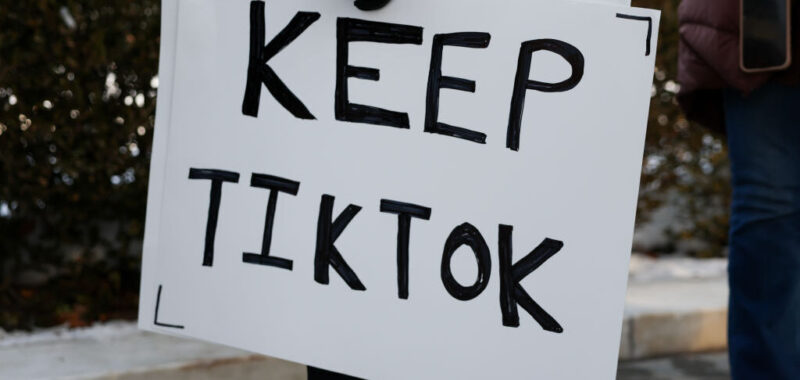
TikTok has lost its Supreme Court appeal in a 9–0 decision and will likely shut down on January 19, a day before Donald Trump’s inauguration, unless the app can be sold before the deadline, which TikTok has said is impossible.
During the trial last Friday, TikTok lawyer Noel Francisco warned SCOTUS that upholding the Biden administration’s divest-or-sell law would likely cause TikTok to “go dark—essentially the platform shuts down” and “essentially… stop operating.” On Wednesday, TikTok reportedly began preparing to shut down the app for all US users, anticipating the loss.
But TikTok’s claims that the divest-or-sell law violated Americans’ free speech rights did not supersede the government‘s compelling national security interest in blocking a foreign adversary like China from potentially using the app to spy on or influence Americans, SCOTUS ruled.
“We conclude that the challenged provisions do not violate petitioners’ First Amendment rights,” the SCOTUS opinion said, while acknowledging that “there is no doubt that, for more than 170 million Americans, TikTok offers a distinctive and expansive outlet for expression, means of engagement, and source of community.”
Late last year, TikTok and its owner, the Chinese-owned company ByteDance, urgently pushed SCOTUS to intervene before the law’s January 19 enforcement date. Ahead of SCOTUS’ decision, TikTok warned it would have no choice but to abruptly shut down a thriving platform where many Americans get their news, express their views, and make a living.
The US had argued the law was necessary to protect national security interests as the US-China trade war intensifies, alleging that China could use the app to track and influence TikTok’s 170 million American users. A lower court had agreed that the US had a compelling national security interest and rejected arguments that the law violated the First Amendment, triggering TikTok’s appeal to SCOTUS. Today, the Supreme Court upheld that ruling.
For TikTok and content creators defending the app, the stakes were incredibly high. TikTok repeatedly denied there was any evidence of spying and warned that enforcing the law would allow the government to unlawfully impose “a massive and unprecedented speech restriction.” But the Supreme Court declined to order a preliminary injunction to block the law until Trump took office, instead deciding to rush through oral arguments and reach a decision prior to the law’s enforcement deadline. Now TikTok has little recourse if it wishes to maintain US operations, as justices suggested during the trial that even if a president chose to not enforce the law, providing access to TikTok or enabling updates could be viewed as too risky for app stores or other distributors.

